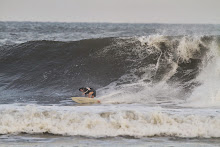So what does wild mean? I’ve been thinking about this question a lot. I’ve also been thinking about fun. What does fun mean?
Yesterday I was over at a National Park trail at the foot of the Volcano Arenal. This thing is a real volcano.
Volcano Photo
It goes up symmetrically, very steep, and its top has been covered by fog all but maybe 15 min of the last 3 days.
But after walking a well-tended National Park trail , you come to the end, where the sign reads don’t go any farther. You hear this funny noise along the way, sounds like wind on the video, but it’s not.
It is the sound of boulders rolling down the volcano, I should say flying down the volcano. Eventually, you notice, way far away on the side of the volcano, a fog rising up. Then, after some practice you see that this is dust not fog, and that it is being kicked up by big mother boulders shooting down the mountain from the top. The noise is the noise of these boulders, distorted by the very long distance away. Check out the video. You won’t see the boulders, but you can see the dust rising where they hit. Really cool. Really wild. If you happened to wander over in that vicinity you would die a terrifying death as you tried to dodge screaming boulders on the sharp lava rock.
So the question of wild is very interesting. Christian, a Tico (Costa Rican) economics major was interviewing people watching the boulders fall. He had interviewed them two years before and was trying to see if the “value” of the experience had changed in the interim. I asked him if it had. He wasn’t sure, or really very interested. But what he WAS interested in was the monkeys.
Two years before there were tons of monkeys. Now they seem to be gone. Christian is convinced that the exponentially increasing traffic on the trail has scared them away. Totally cool hypothesis. This kid should be a biologist, not an economist.
Now those of you who’ve followed my blog might recognize this effect as a strictly behavioral one. These loud tourists have very little impact on the ecology of the area. Just a thin low-relief trail. No changes to the vegetation, or run-off or anything. Just a lot of loud tourists streaming back and forth every day.
But the behavioral effect that Christian observed, probably correct yet completely unproved (because Christian never measured quantitatively the density of the monkeys), is that the monkeys moved away during the last two years.
This is kind of the reverse of the lobster effect inside the reserves at Catalina. There, the imposed protection makes the lobsters more aggressive (via hunger), and thereby changes the ecosystem (our hypothesis, as yet unproven). Here, the lifting of protection may be causing the monkeys to shy away to somewhere else (don’t know what the ecosystem effect is here, but I imagine it is pretty big).
Ecosystem managers tend to think from the bottom up. Maintain the trees and plants intact and everything will be ok. I’m thinking more and more, these days, that this approach leaves a ton of critically important questions about behavioral changes unanswered.
Here’s Christian standing by a big ole tree in the park.
What about the fun you ask?
Stay tuned.
Wednesday, March 3, 2010
Subscribe to:
Post Comments (Atom)

Or a screaming death as you tried to dodge sharp boulders on the terrifying lava rock. Or a sharp death as you tried to dodge terrifying boulders on the screaming lava rock.
ReplyDeleteYeah. It's adjective soup. There's sort of a bubbling of emotions, and the adjectives pop up randomly, sometimes without replacement (have to go back and edit out strict redundancy such as terrified and terrified, but maybe leaving terrific and terrified as alliterative justice, to mix a metaphor. Tican coffee and a drizzly day babbling me along (bubbling?). But don't take away my adjectives, whatever you do. What fun would it be without adjectives?
ReplyDeleteoh, billy. you are what's fun.
ReplyDeleteaahh. Fonda!
ReplyDelete